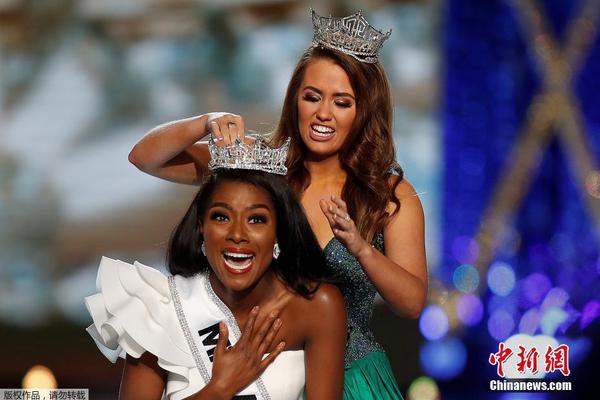The Watch Ignite Vol. 3 Onlinecity of Chicago is taking food delivery services Grubhub and DoorDash to court.
The lawsuit, described in an Aug. 27 news release from Mayor Lori Lightfoot's office, alleges that the two companies have been "engaging in deceptive and unfair business practices that harm restaurants and mislead consumers." The city is seeking changes to the way each business operates (in the form of greater transparency), restitution for restaurants and customers, and fines.
A statement attributed to Lightfoot reads:
As we stared down a global pandemic that shuttered businesses and drove people indoors, the defendants' meal delivery service apps became a primary way for people to feed themselves and their families, as well as support local restaurants. It is deeply concerning and unfortunate that these companies broke the law during these incredibly difficult times, using unfair and deceptive tactics to take advantage of restaurants and consumers who were struggling to stay afloat.
The release from the mayor's office lays out allegations that apply to each individually, as well as a number that apply to both. The city's lawyers claim that Grubhub and DoorDash both engaged in the practice of advertising their order and delivery services for restaurants that had no connection to the platforms.
The city also claims that both companies used "bait-and-switch" tactics that highlighted small delivery fees up front, only to lump in additional fees at the end of the order. "This increases the total cost of delivery by as much as six times the amount initially advertised," the news release states. Menu prices on both platforms were also allegedly "significantly" higher than the same items would be when ordering from the restaurant directly.
In terms of specific alleged offenses, Chicago's case notes that Grubhub: used "routing" telephone numbers that were misrepresented as direct lines to a restaurant, and even "regularly" charged said restaurant commission fees when such calls didn't end in an order; created fake "impostor websites" for restaurants that would send customers to Grubhub; employed "deceptive, promotional campaigns to 'save restaurants'" while passing the costs of those campaigns to the restaurants; and violated Chicago's 15 percent "emergency cap" on restaurant commissions (i.e. the company allegedly took a greater cut that was legally allowed under Chicago's pandemic relief rules).
Separately, the statement alleges that DoorDash: misled customers about tips going to drivers "when in fact the customer 'tip' was used to subsidize DoorDash's own payment to its drivers"; added a "misleading 'Chicago fee' of $1.50 on every order in the city, deceptively implying the fee was required by, or paid to, Chicago" when in fact that money went to DoorDash.
A DoorDash spokeswoman offered this statement in response to the lawsuit: "This lawsuit is baseless. It is a waste of taxpayer resources, and Chicagoans should be outraged. DoorDash has stood with the City of Chicago throughout the pandemic, waiving fees for restaurants, providing $500,000 in direct grants, creating strong earning opportunities, and delivering food and other necessities to communities in need. This lawsuit will cost taxpayers and deliver nothing."
The company also refutes several of the claims made in the lawsuit and associated statement from the city. It maintains that "Dashers" — the name used for its delivery workers — have always received 100 percent of their tips. DoorDash also notes that while new restaurants not partnered with the company haven't been added to the site since Nov. 2020, those that were added prior didn't face any fees and they all had the ability to opt out, after which they would be removed within 48 hours.
SEE ALSO: Judge strikes down 'unconstitutional' law classifying Uber, Lyft drivers as contractorsMashable also reached out to Grubhub for a statement, but none was provided as of publish. The company had this to say in a statement provided to The Verge: "We are deeply disappointed by Mayor Lightfoot’s decision to file this baseless lawsuit. Every single allegation is categorically wrong and we will aggressively defend our business practices. We look forward to responding in court and are confident we will prevail."
It's worth mentioning that Chicago's lawsuit didn't exactly materialize in a vacuum. In one example, a 2020 report detailed the Grubhub practice of listing non-partner restaurants on its ordering site. In another example, one which undercuts DoorDash's claim that Dashers have "always" received their full tips, the company was forced to change its tipping model in 2019 and paid a $2.5 million settlement a year later after it came out that tips were being used to subsidize payments to delivery workers.
All of which is to say: There's a lengthy history here that leads to Chicago's lawsuit. DoorDash and Grubhub both may claim things are a certain way, but that doesn't mean every claim is true. That's what the legal process is for. So stay tuned.
(Editor: {typename type="name"/})
 Dyson V8 Plus cordless vacuum: $120 off at Amazon
Dyson V8 Plus cordless vacuum: $120 off at Amazon
 Scary footage shows woman plunging into frozen lake to rescue stranded dog
Scary footage shows woman plunging into frozen lake to rescue stranded dog
 YouTube Live gets location tags, automatic captioning, and more
YouTube Live gets location tags, automatic captioning, and more
 Report: Apple working on new headphones that aren't AirPods or Beats
Report: Apple working on new headphones that aren't AirPods or Beats
 The Poverty of Theory
...[Details]
The Poverty of Theory
...[Details]
Arctic warm event stuns scientists, as record warmth reaches North Pole
 Arctic scientists are poring over data coming in from the vast, normally frozen region, after the No
...[Details]
Arctic scientists are poring over data coming in from the vast, normally frozen region, after the No
...[Details]
We tried out the LG V30s and its AI
 This Mobile World Congress, LG is laying low. The company held a press conference on Saturday, insis
...[Details]
This Mobile World Congress, LG is laying low. The company held a press conference on Saturday, insis
...[Details]
What's coming to (and going from) Hulu in March
 If you squint a little in the direction of the horizon, you might see spring, or hope, or whatever d
...[Details]
If you squint a little in the direction of the horizon, you might see spring, or hope, or whatever d
...[Details]
Best soundbar deal: Save $300 on the Sonos Arc
 SAVE $300: As of May 16, get the Sonos Arc soundbar for $599 at Amazon, down from its usual price of
...[Details]
SAVE $300: As of May 16, get the Sonos Arc soundbar for $599 at Amazon, down from its usual price of
...[Details]
Download this: 'Alto's Odyssey' is the sequel we've been waiting for
 One of the best iPhone games finally has the sequel we've been waiting for.Alto's Odyssey, the long-
...[Details]
One of the best iPhone games finally has the sequel we've been waiting for.Alto's Odyssey, the long-
...[Details]
Coal baron's defamation lawsuit against John Oliver has been dismissed
 John Oliver's legal tussle with a man he once called a "geriatric Dr. Evil" is over and the HBO late
...[Details]
John Oliver's legal tussle with a man he once called a "geriatric Dr. Evil" is over and the HBO late
...[Details]
Nokia is bringing back the Matrix phone
 When you have a history as long as Nokia, there's a lot of cool stuff too revive -- and HMD Global,
...[Details]
When you have a history as long as Nokia, there's a lot of cool stuff too revive -- and HMD Global,
...[Details]
Shop Owala's Memorial Day Sale for 30% off tumblers
 SAVE 30%:This Memorial Day, shop Owala's tumblers for 30% off. Get a 40 oz. tumbler for just $28 and
...[Details]
SAVE 30%:This Memorial Day, shop Owala's tumblers for 30% off. Get a 40 oz. tumbler for just $28 and
...[Details]
Winter Olympic Google Doodles, ranked
 The Olympics are a time for some of the world's best athletes to compete on the world's grandest sta
...[Details]
The Olympics are a time for some of the world's best athletes to compete on the world's grandest sta
...[Details]
Your 'wrong person' texts may be linked to Myanmar warlord

Yes, the rumors are true. Girl Scout Cookie coffee is now a part of this world.

接受PR>=1、BR>=1,流量相当,内容相关类链接。